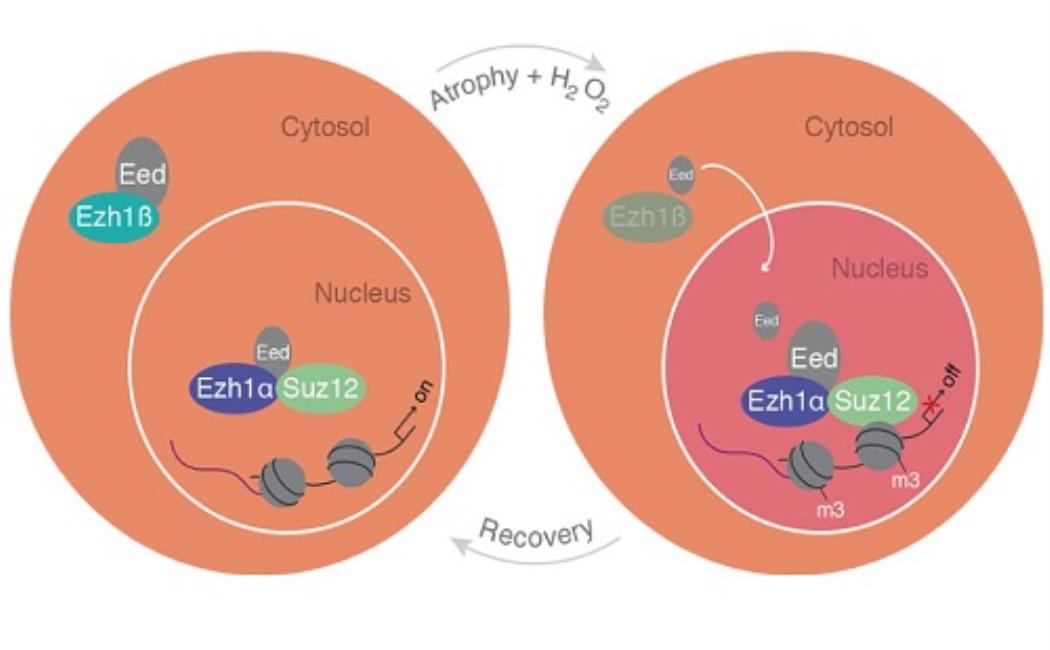
Short regulatory gene spotted
11 June, 2017
An epigenetic mechanism regulating gene activity has been revealed by a KAUST-led international team of researchers investigating interactions between the human genome and its environment in adult tissues.
Valerio Orlando’s lab at KAUST looks at the role of Ezh1, a gene whose function in mature tissues has remained unclear for 25 years. Like its twin Ezh2, Ezh1, along with a partner protein, encodes a protein involved in tagging genes to repress their activity. However, while Ezh2 mutations have been linked to cancer and developmental defects, mice lacking Ezh1 seem to develop normally.
Click here to read the full story.
Image: A schematic model of cytosolic Ezh1ß function in postmitotic differentiated muscle cells.
© KAUST 2017 Ivan Gromicho